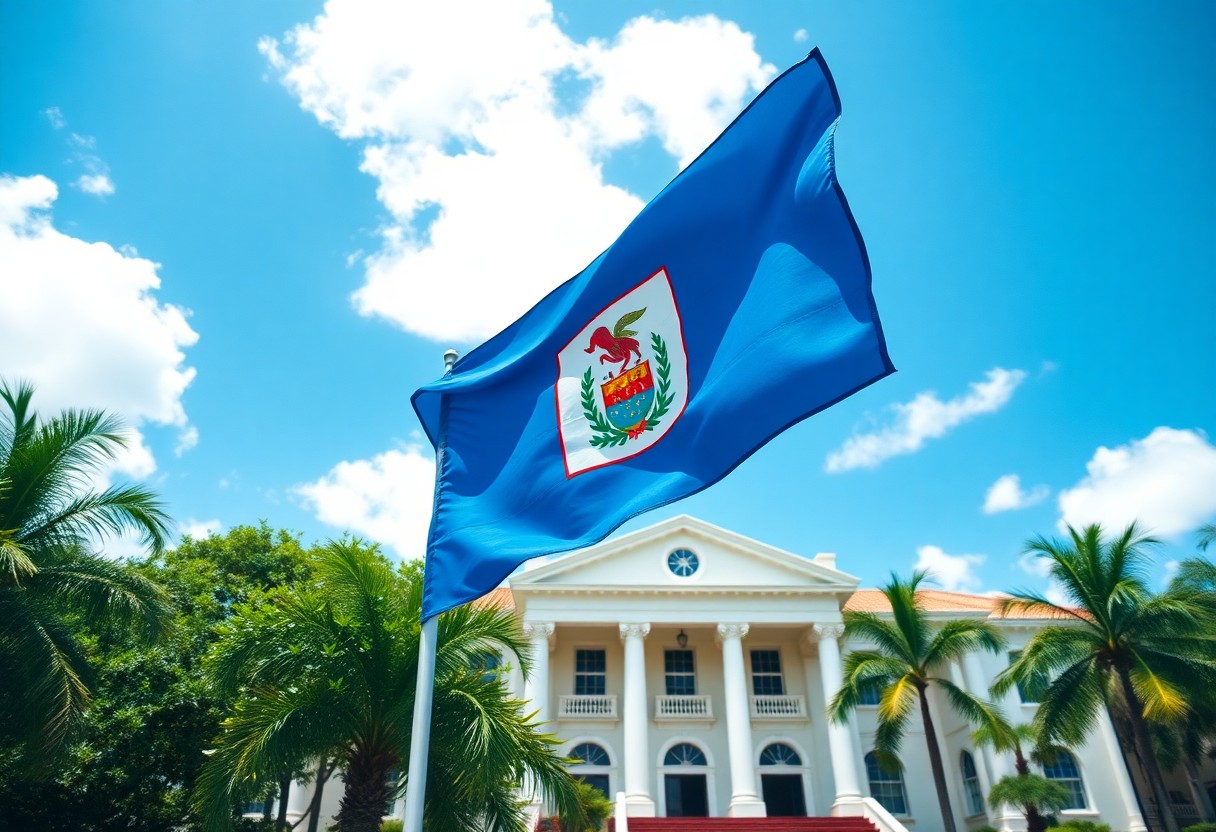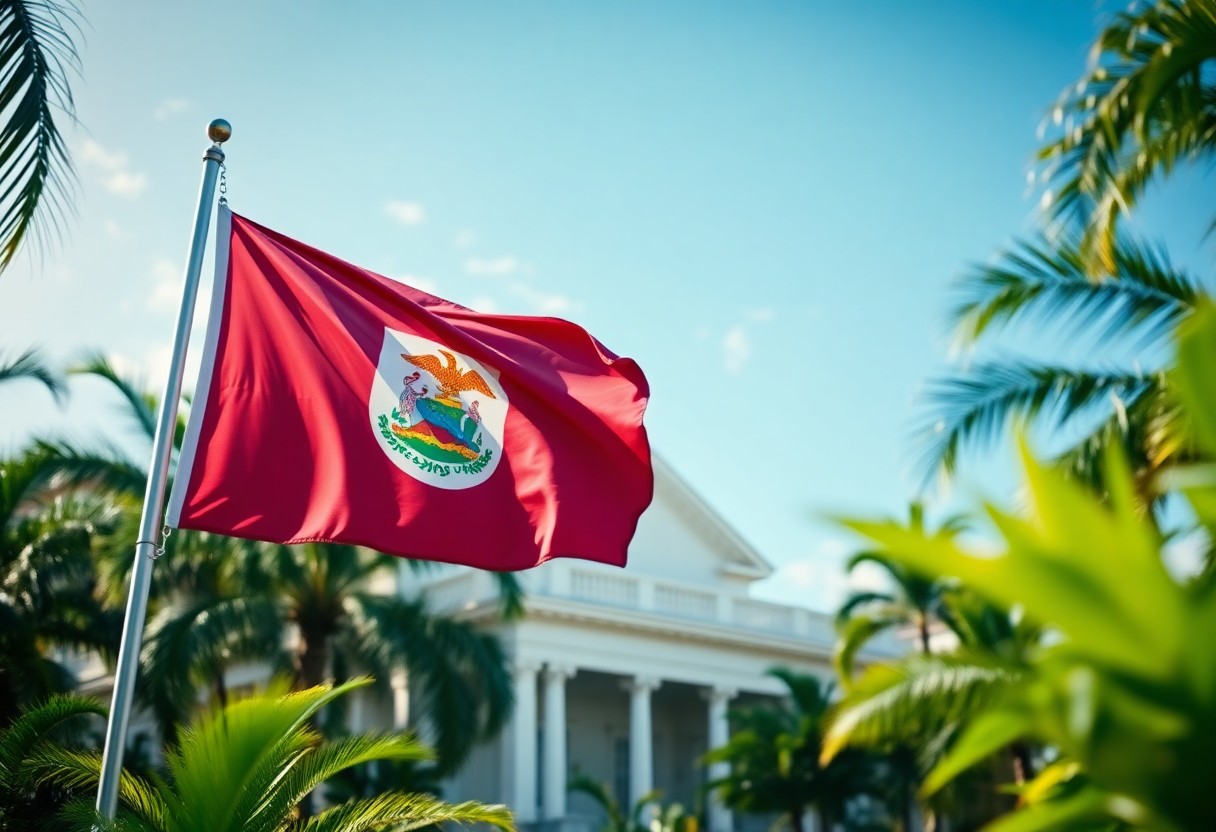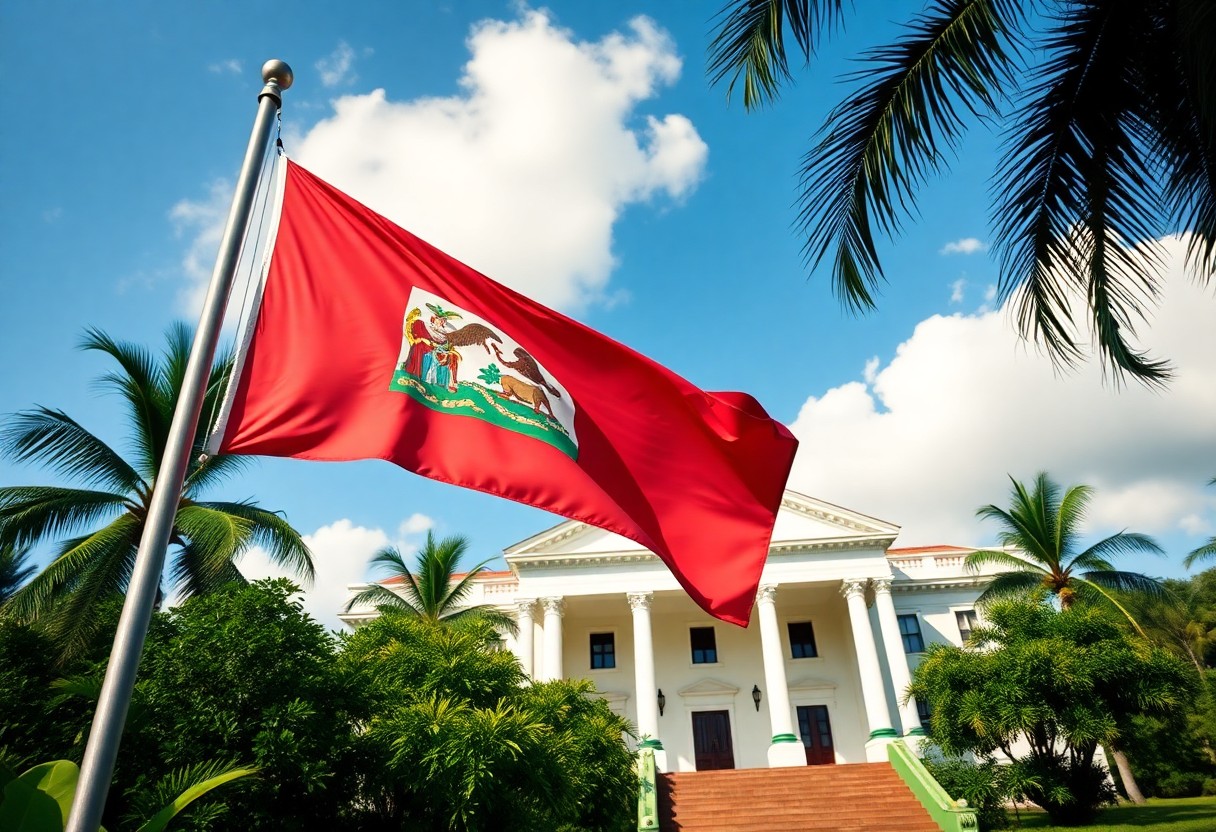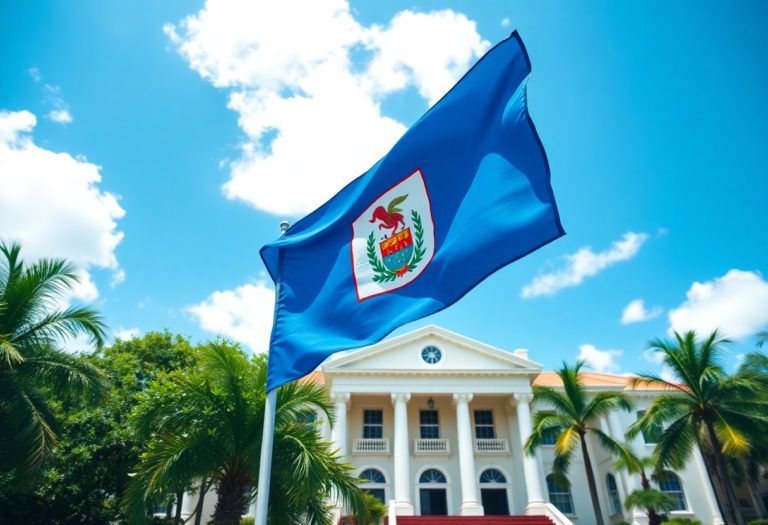Unraveling the Journey of Belize Towards Independence is crucial for gaining insights into the profound essence of Belizean identity and its fascinating historical narrative. This comprehensive article will delve into the significant historical events that meticulously shaped the nation’s challenging journey to becoming a sovereign entity. We will underscore the relentless battles against colonial dominance, the essential treaties that were forged, and the landmark achievement of self-governance realized in 1981. These pivotal historical milestones not only illuminate the resilience and courage of the Belizean populace but also highlight the transformative changes that paved the way for the establishment of a democratic Belize. Join us as we explore the vital milestones that continue to influence the national identity of Belize today.

Immersing Yourself in the Rich Pre-Colonial History of Belize
Before the onset of European colonization, the pre-colonial era in Belize was characterized by a vibrant array of indigenous cultures and rich historical narratives. Multiple indigenous groups thrived across the region, with the Maya civilization standing out as the most prominent. These societies crafted intricate social structures, advanced agricultural techniques, and extensive trading networks that were exceptional for their time. The cultural heritage from this epoch serves as a fundamental cornerstone for Belize’s modern identity, shaping the trajectory of subsequent historical developments that unfolded in the region.
Celebrating the Exceptional Contributions of Maya Civilizations
A thorough examination of pre-colonial Belize necessitates a focus on the remarkable contributions of the Maya civilizations. These ancient societies not only survived but thrived in various fields such as architecture, astronomy, and agriculture. Visitors and locals alike can admire breathtaking archaeological sites like Caracol and Lamanai, which serve as enduring symbols of the Maya’s advanced lifestyle. These ruins provide insight into their profound understanding of urban planning and natural sciences, showcasing their innovative spirit and extraordinary accomplishments that continue to resonate in Belize’s cultural narrative.
Valuing Belize’s Diverse and Multifaceted Cultural Heritage
At the core of Belize’s identity lies a rich and intricate cultural heritage. This vibrant tapestry is intricately woven from the complex interactions among indigenous, African, and European influences that have collectively molded modern Belizean society. The diversity inherent in this heritage is vividly reflected in the multitude of languages, customs, and traditions that enrich the daily lives of Belizeans, creating a unique cultural landscape celebrated by its diverse populace.
Moreover, cultural heritage plays an integral role in shaping Belize’s national identity. The architectural marvels of the Maya, alongside their innovative agricultural techniques, continue to resonate in contemporary Belize. Additionally, you will discover how the African and Creole heritages have greatly enriched Belize’s artistic expressions, musical traditions, and culinary delights. This captivating blend of cultures nurtures a profound sense of belonging and pride among Belizeans while serving as a poignant reminder of the historical challenges faced by these diverse communities throughout the nation’s vibrant history.
Understanding the Era of British Honduras and Its Lasting Impact
The epoch when Belize was known as British Honduras represents a crucial chapter marked by British colonial governance. Stretching from the 18th century into the mid-20th century, this period witnessed the emergence of a unique cultural identity heavily influenced by British authority, economic endeavors, and local resistance movements. During these years, significant political and administrative transformations occurred, ultimately laying the groundwork for Belize’s steadfast quest for independence.
Unpacking the Complexities of British Rule in Belize
Following its formal designation as a British colony in 1862, British Honduras experienced significant changes, including the introduction of the British legal system and the establishment of vital infrastructure. Over the years, the colony faced considerable opposition from its residents, notably highlighted during the 1934 labor riots, which galvanized substantial support among the Belizean populace for self-governance. These events are pivotal for understanding the intricate dynamics of Belize’s journey toward independence.
The Lasting Impact of British Colonial Rule on Belizean Society
Above all, the ramifications of British colonial rule have profoundly influenced various facets of Belizean society and its governance structures. The introduction of the English language, along with legal systems and educational institutions, played a fundamental role in modernizing the nation. While this relationship presented challenges, it also established essential foundations for the democratic governance that Belize enjoys today.
Additionally, the legacy of British colonialism is manifest in numerous aspects of Belize’s contemporary society. The English language remains the official language, facilitating communication both locally and internationally. Furthermore, the legal and governance frameworks established during the colonial period have served as the bedrock for Belize’s current legal system. However, it is vital to acknowledge that this influence was accompanied by the exploitation of resources and cultural imposition, which have left lasting effects on Belizean demographics and national identity. Gaining insight into these complex dynamics is essential for comprehending Belize’s intricate journey toward independence.

Navigating the Pivotal Journey to Independence for Belize
Any dialogue concerning Belize’s path to independence must recognize the significant events that laid the foundation for this historic transformation. The road to freedom involved responding to colonial pressures, nurturing a burgeoning sense of nationalism, and advocating for enhanced self-determination among the Belizean populace. The mid-20th century marked a period of heightened political activism, which diligently established the groundwork for Belize’s eventual liberation from British colonial rule.
Recognizing the Key Historical Leaders in Belize’s Independence Movement
Prominent historical milestones along Belize’s journey to independence feature influential leaders such as George Cadle Price. By acknowledging their leadership and vision, one can appreciate how these figures rallied public support for self-governance, significantly shaping the future identity and direction of the nation.
Engaging in Negotiations for Self-Governance
During the crucial discussions surrounding self-governance, representatives of the Belizean populace emerged as central figures, proposing transformative strategies that would redefine the course of history.
With a proactive and determined approach, Belizean leaders actively participated in dialogues with British representatives regarding self-governance. These negotiations represented a critical juncture, as Belize sought to assert its autonomy in managing its own affairs. The formation of political parties and organized movements played a vital role in articulating the demands for change from the Belizean populace. As tensions escalated, the negotiations intensified, reflecting the urgency felt by Belizeans for greater autonomy. This pivotal period culminated in various constitutional amendments, laying the groundwork for Belize’s eventual independence from colonial oversight.
Identifying Key Milestones that Shaped Belize’s Path to Independence
A multitude of significant milestones characterized Belize’s challenging journey to independence. From early legislative initiatives to pivotal events, each moment played a critical role in the quest for self-determination. As you explore these milestones, you will come to appreciate their profound impact on the nation’s identity and the ongoing struggle for sovereignty.
Highlighting Notable Legislative Developments Leading to Self-Governance
One of the key early legislative developments was the introduction of the Internal Security Act in 1961. This act established a framework for self-governance, allowing for a limited degree of autonomy in local governance matters. This crucial legislation marked a watershed moment, motivating Belizeans to actively engage in political processes and advocate for further reforms.
Examining Crucial Events from 1964 to 1981 that Shaped Belize’s Political Landscape
In the years leading up to Belize’s independence, significant events from 1964 to 1981 played a vital role in shaping the nation’s political landscape. These moments included the emergence of influential political leaders and nationalist movements, which laid the foundation for achieving self-governance.
During this transformative period, numerous key events unfolded that contributed to Belize’s independence. The 1964 Elections marked the advent of a new era of political engagement by expanding voting rights to a broader segment of the Belizean population. The 1969 Belize-Guatemala tensions further intensified calls for autonomy and unity among citizens. The 1973 Constitution established a more robust governance framework, granting additional rights and liberties to the populace. Ultimately, these developments, coupled with the declaration of independence in 1981, defined Belize’s trajectory toward establishing a national identity and self-governance.

Navigating the Challenges and Developments in Post-Independence Belize
In the years following its independence in 1981, Belize encountered a series of challenges and opportunities in its quest to establish a cohesive national identity and effective governance. The nation undertook significant initiatives to create a stable political environment while promoting economic growth and addressing pressing social issues. Efforts were focused on enhancing infrastructure, education, and healthcare systems, all aimed at improving the quality of life for every Belizean in this young and evolving democracy.
Grasping the Political Framework of Belize
The political framework is fundamental in determining the governance of Belize. You will find that the country operates as a parliamentary democracy, characterized by a clear separation of powers among the executive, legislative, and judicial branches. The Prime Minister leads the government, while the legislative body consists of the House of Representatives and the Senate. This political system encourages regular elections and representation of diverse political perspectives, fostering active civic participation among the populace.
Understanding the Significance of Commonwealth Membership for Belize’s Development
Upon gaining independence, Belize became a member of the Commonwealth of Nations, which has played a pivotal role in nurturing international relationships and support. This membership provides Belize access to a network of countries that share similar democratic values, facilitating participation in collaborative initiatives across various sectors, including education and trade.
A significant advantage of Belize’s Commonwealth membership is the opportunity to engage in dialogues regarding regional issues that impact the nation. Participation in this organization enhances Belize’s global standing while also strengthening connections with other former British colonies. Additionally, you will find that Commonwealth nations frequently provide developmental assistance, which can be crucial in addressing local challenges. However, this membership also entails a commitment to upholding democratic principles and human rights, ensuring that Belize continues to evolve as a respected member of the international community.
Confronting the Current Challenges Facing Belize’s Future
It is crucial to recognize that Belize faces a multitude of contemporary challenges that significantly influence its stability and growth trajectory. These challenges encompass economic issues, social considerations, governance, and environmental factors that collectively shape the nation’s future. Addressing these pressing issues is vital for sustaining progress, as they directly impact the daily lives of Belizeans and the overall development of the country.
Investigating Economic Challenges in Modern Belize
Modern economic challenges facing Belize include high unemployment rates and an overwhelming dependence on tourism as a primary economic driver. These factors contribute to economic instability and have a direct impact on the livelihoods of local businesses. Fluctuations in global tourism trends can profoundly affect Belize’s economy, placing additional strain on government resources and public services.
Tackling Social Issues within Belizean Society
In Belize, social challenges such as poverty and inequality persist as significant barriers. Limited access to education and healthcare services exacerbates disparities among various communities, adversely affecting the overall quality of life for Belizeans.
Furthermore, it is essential to recognize that social issues in Belize are intricately intertwined with existing economic conditions. High poverty rates severely limit access to essential services, while inequalities in education hinder future opportunities for many individuals. Nevertheless, community initiatives and government programs are proactively addressing these concerns, fostering a sense of hope and resilience among the population. By strengthening social bonds and investing in education and healthcare, Belize can progress towards achieving a more equitable society for all its residents.
Reflecting on the Historic Journey of Belize Towards Independence
Reflecting on Belize’s journey to independence enables you to appreciate the significance of key historical milestones that have shaped the nation. You can recognize the ramifications of the 1964 and 1973 constitutional changes that established the foundation for self-governance. You also understand the importance of the 1975 Treaty of Friendship with Guatemala in addressing long-standing territorial disputes. Ultimately, the official independence attained on September 21, 1981, marked a transformative chapter in Belize’s history, allowing every Belizean to celebrate their national identity and sovereignty. Each of these milestones played a crucial role in molding Belize into the nation it is today.
Common Questions Regarding Belize’s Path to Independence
What Major Historical Events Led to Belize Achieving Independence?
Belize’s quest for independence was characterized by a series of significant events. The movement for independence gained traction in the 1940s, culminating in 1981 when Belize officially achieved freedom from British colonial rule. Key milestones during this period included the establishment of a constitutional government in 1964 and the organization of self-governing elections.
Who Were the Key Figures Involved in Belize’s Independence Movement?
Several influential personalities played vital roles in the independence movement. George Price, the leader of the People’s United Party, was instrumental in advocating for Belize’s independence. Other notable figures included Philip Goldson and various members of political organizations that actively campaigned for self-determination.
How Did the British Government Respond to the Movements for Belize’s Independence?
The British government initially demonstrated resistance to Belize’s independence; however, it eventually recognized the nation’s readiness for self-rule. This shift occurred as British officials observed the rising political awareness and activism among Belizeans. Consequently, British representatives collaborated with local leaders to facilitate a smooth transition toward independence.
The Article How Belize Gained Independence: Key Historical Milestones appeared first on Belize Travel Guide
The Article Belize Independence: Key Historical Milestones Explained Was Found On https://limitsofstrategy.com




The exploration of Belize’s journey towards independence is indeed a profound undertaking, one that speaks not only to the historical resilience of its people but also to the multifaceted identity that has emerged from a complex tapestry of cultural influences. As you mention, the historical milestones in this journey are vital in understanding how the Belizeans navigated through a period marked by colonial turbulence, and I believe that these events have lasting effects on the national consciousness.